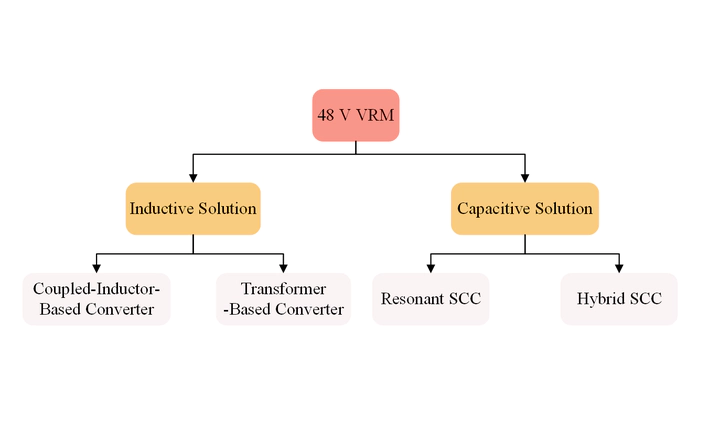 Image credit: Jiawei
Image credit: JiaweiAbstract
The intermediate dc bus voltage in modern data center backend power supply is evolving from conventional 12 V to 48 V. It still requires the voltage regulator modules (VRM) to feed the terminal loads such as memory and computing units operating with very high current (> 100 A/module) and very low logic voltage (0.8 V-1.8 V). This makes it challenging to optimize the design of load-side VRMs with quadrupled input voltage. This paper comprehensively reviews the state-of-the-art 48 V VRMs and categorizes them according to passive component utilization. The first category is inductive solution which is further divided into coupled-inductor-based converters and transformer-based converters. The second category named capacitive solution is further divided into resonant switched-capacitor-based converters (Resonant SCC) and hybrid switched-capacitor-based converters (Hybrid SCC). Typical topologies are discussed, analyzed and summarized to perform a comprehensive performance comparison, such that the characteristics of different VRMs can be manifested. Some design considerations are also given to facilitate the design of the practical prototypes. Moreover, opportunities and challenges in the future data center power system are presented to provide technical insights.